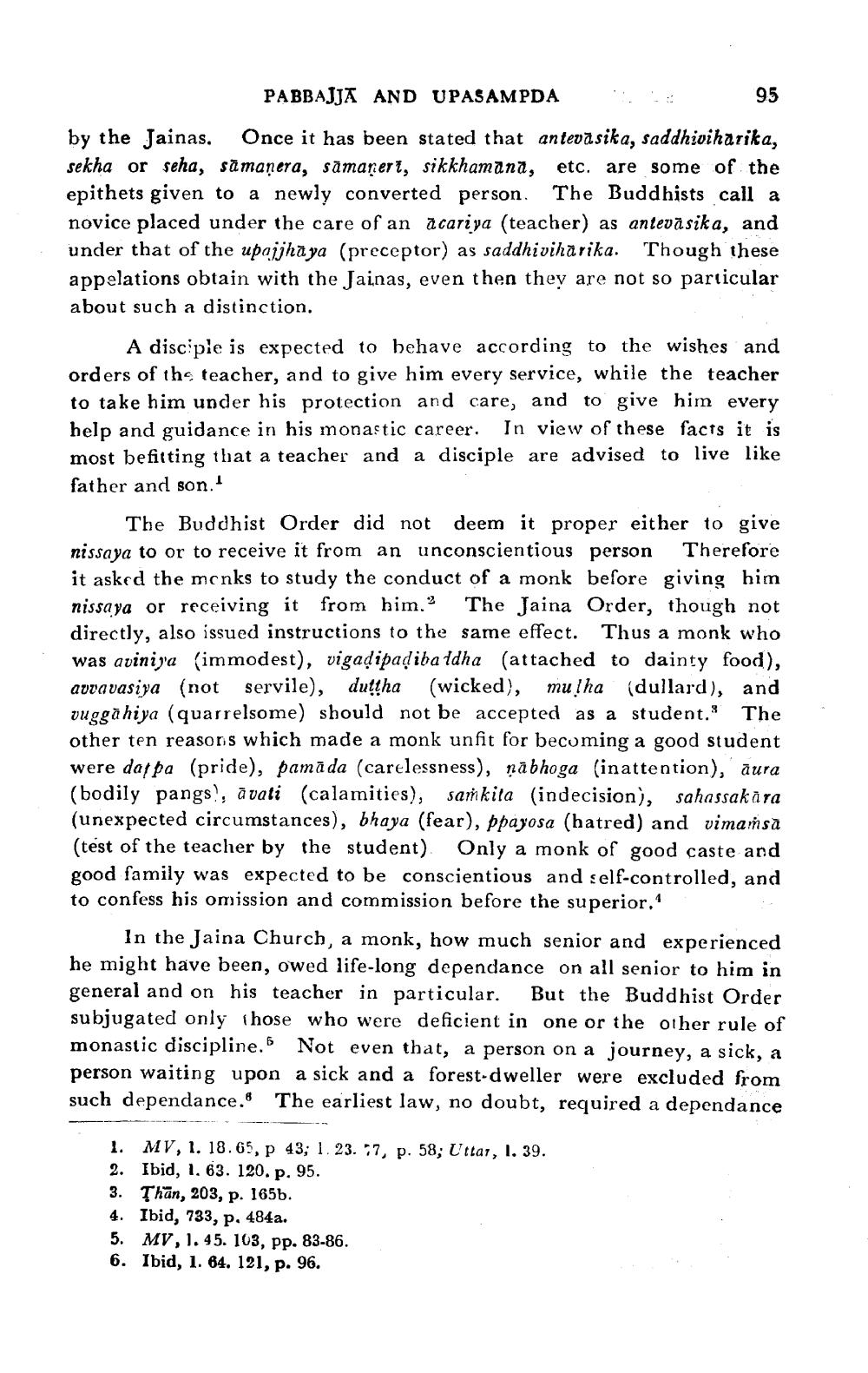________________
PABBAJJA AND UPASAMPDA
by the Jainas. Once it has been stated that antevasika, saddhiviharika, sekha or seha, samanera, samaṇert, sikkhamana, etc. are some of the epithets given to a newly converted person. The Buddhists call a novice placed under the care of an acariya (teacher) as antevasika, and under that of the upajjhaya (preceptor) as saddhiviharika. Though these appelations obtain with the Jainas, even then they are not so particular about such a distinction.
A disciple is expected to behave according to the wishes and orders of the teacher, and to give him every service, while the teacher to take him under his protection and care, and to give him every help and guidance in his monastic career. In view of these facts it is most befitting that a teacher and a disciple are advised to live like
father and son.1
The Buddhist Order did not deem it proper either to give nissaya to or to receive it from an unconscientious person Therefore it asked the monks to study the conduct of a monk before giving him nissaya or receiving it from him." The Jaina Order, though not directly, also issued instructions to the same effect. Thus a monk who was aviniya (immodest), vigaḍipaḍibaldha (attached to dainty food), avvavasiya (not servile), duttha (wicked), mulha (dullard), and vuggahiya (quarrelsome) should not be accepted as a student." The other ten reasons which made a monk unfit for becoming a good student were dappa (pride), pamāda (carelessness), nabhoga (inattention), aura (bodily pangs, avati (calamities), saṁkita (indecision), sahassakāra (unexpected circumstances), bhaya (fear), ppayosa (hatred) and vimamsa (test of the teacher by the student). Only a monk of good caste and good family was expected to be conscientious and self-controlled, and to confess his omission and commission before the superior.1
95
In the Jaina Church, a monk, how much senior and experienced he might have been, owed life-long dependance on all senior to him in general and on his teacher in particular. But the Buddhist Order subjugated only those who were deficient in one or the other rule of monastic discipline. Not even that, a person on a journey, a sick, a person waiting upon a sick and a forest-dweller were excluded from such dependance." The earliest law, no doubt, required a dependance
1.
MV, 1. 18.65, p 43; 1.23. 77, p. 58; Uttar, I. 39.
2. Ibid, 1. 63. 120. p. 95.
3. Than, 203, p. 165b.
4. Ibid, 733, p. 484a.
5. MV, 1.45. 103, pp. 83-86.
6. Ibid, 1. 64. 121, p. 96.




